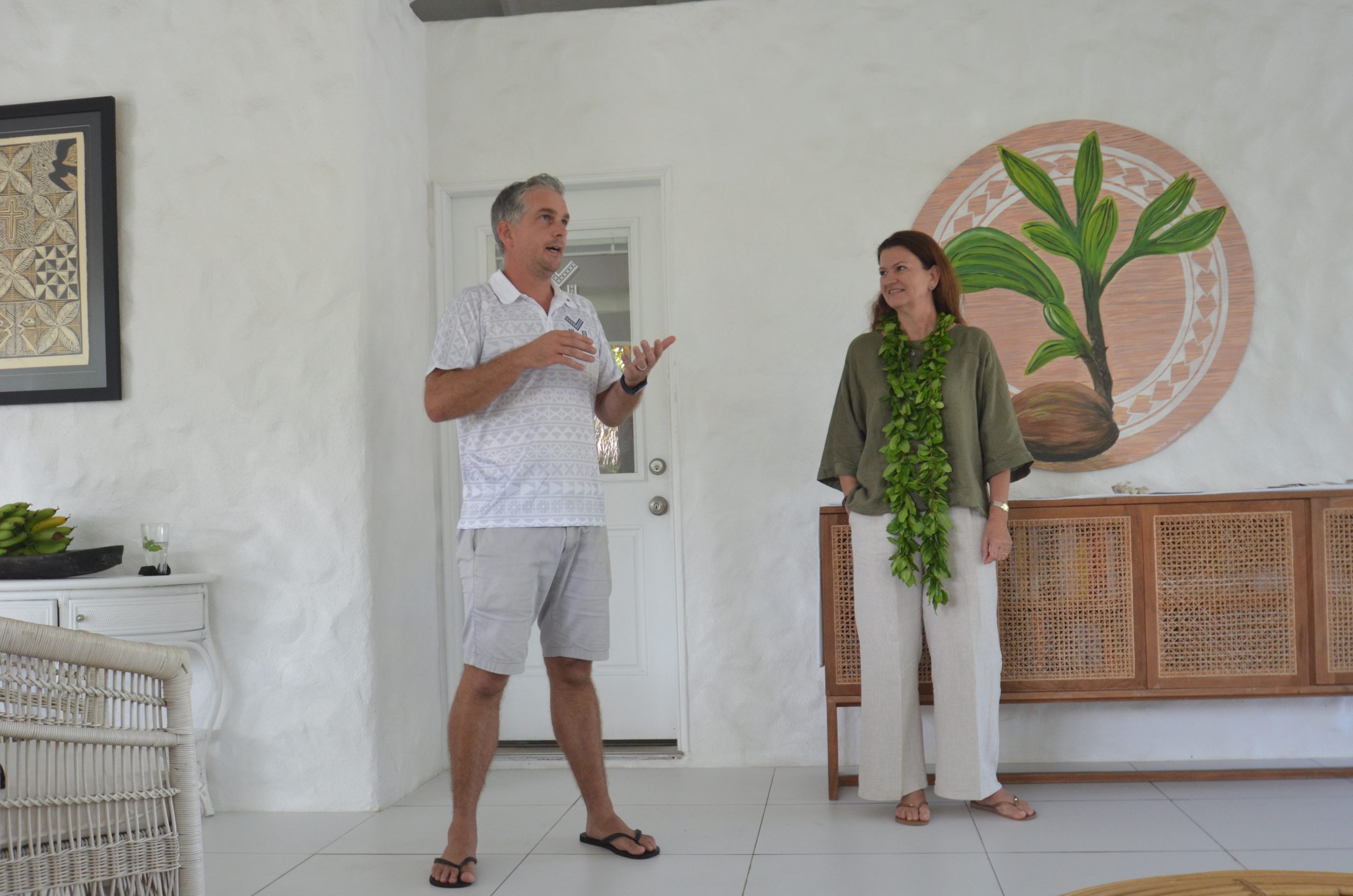Rarotonga resort prioritises sustainability to meet eco- conscious tourist demands
Friday 24 May 2024 | Written by Losirene Lacanivalu | Published in Environment, Features, Go Local, National, Tourism

Iris Heniz, the head of DEInternational projects and services for German Chamber of Commerce, New Zealand, with MOTU Beachfront Art Villas manager Tim Meyer. 24052132/24052134
A Rarotonga-based resort is participating in a German-funded green hydrogen project to reduce its carbon footprint and become more sustainable for environmentally conscious tourists.
MOTU Beachfront Art Villas is part of the Green Hydrogen Project aiming to do more for the community and reduce its carbon footprint.
An open forum presentation of Green Hydrogen for Decentralised Power Supply of Hotels and Tourist Sites in the Pacific Islands was held at MOTU Beachfront Art Villas on Wednesday. Discussions included various stakeholders, as well as Cook Islands Tourism.
Villas’ manager Tim Meyer said the project is a German Chamber of Commerce (Auckland) project and financed through the German Ministry of Environment.
Meyer said that participating in the project is currently free of charge.
“What their cost benefit calculation is that they are promoting products made in Germany overseas … At this stage there’s no cost for us whatsoever and the big benefit for us is that we get the data connection from our properties like the energy consumption that we have and getting analysis of our footprints and our services that we’re using.”
Meyer explained that they decided to be part of the project because they have had guests inquiring and are interested in understanding where their services such as electricity come from, and what was done with the wastewater.
“When this opportunity came up to be part of a green hydrogen project where the energy is stored at green hydrogen and just produced by the sun, we were just thinking that this is just so cool because it’s cutting edge and just the pathway into a greener future.

Guests at the presentation. 24052133
“At the end of the day, what it boils down to is that in being part of this project, we are trying to stay relevant into the future for guests coming here in five- and 10-years’ time because they’re just looking at a different experience. And part of that experience, from what we are learning from our guests, is that they just want the properties to have very green footprint.”
At the presentation, Meyer said that he had a long chat with the engineers from Berlin, Germany, and had stressed that as a tourism accommodation business, MOTU want to do more for the community and reduce their footprint.
“One of the things that was really important when we started turning things around here on the property is we are reducing our water footprint. We are reducing our power consumption. We are eliminating gas as much as we can.
“But when we looked at the hydrogen production, what was really important to me is that we are looking at our water footprint.”
Iris Heniz, the head of DEInternational projects and services for German Chamber of Commerce, New Zealand, said they started looking into the Pacific Islands two years ago.
They now have two projects and one of them is renewable energy with storage via green hydrogen. The other project with another German ministry is on renewable energy in the tourism sector.
Heniz
said they were working in four markets Tonga, Samoa and Fiji, and Cook Islands.
“We had to choose of course and we looked at the different populations and
markets and we thought Cook Islands is very close to New Zealand, has
already very good ties to the economy there and it’s much easier for New
Zealand companies also then maybe to work in the Cook Islands.”
The team will hold a meeting in Aitutaki today.














































